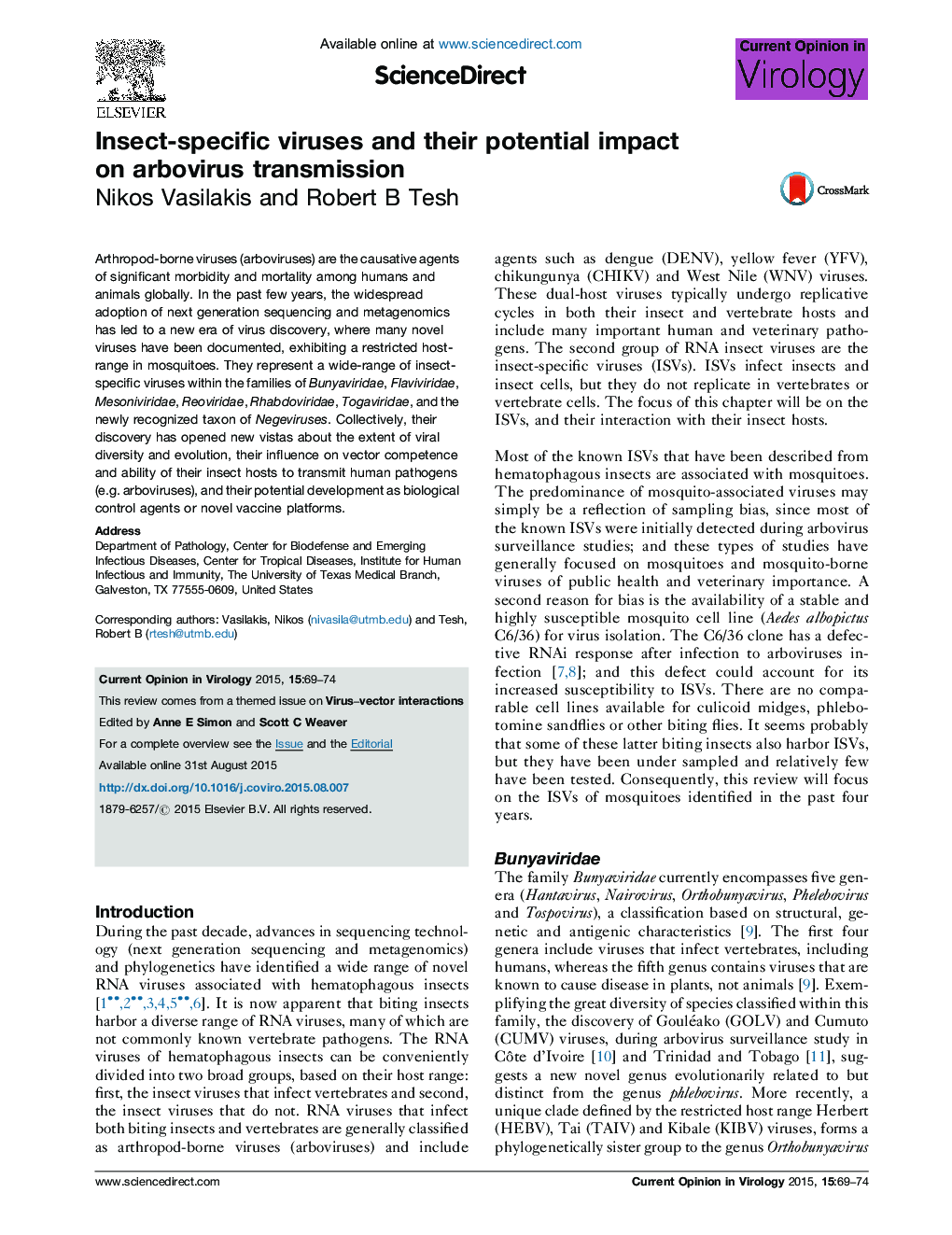| کد مقاله | کد نشریه | سال انتشار | مقاله انگلیسی | نسخه تمام متن |
|---|---|---|---|---|
| 2473201 | 1555911 | 2015 | 6 صفحه PDF | دانلود رایگان |
• ISVs are novel RNA viruses associated with hematophagous insects.
• Belong in diverse families such as Bunyaviridae, Mesoviviridae, and Rhabdoviridae.
• Little is known about the determinants of the ISVs restricted host range.
• Little is known about their mode of transmission and maintenance in nature.
Arthropod-borne viruses (arboviruses) are the causative agents of significant morbidity and mortality among humans and animals globally. In the past few years, the widespread adoption of next generation sequencing and metagenomics has led to a new era of virus discovery, where many novel viruses have been documented, exhibiting a restricted host-range in mosquitoes. They represent a wide-range of insect-specific viruses within the families of Bunyaviridae, Flaviviridae, Mesoniviridae, Reoviridae, Rhabdoviridae, Togaviridae, and the newly recognized taxon of Negeviruses. Collectively, their discovery has opened new vistas about the extent of viral diversity and evolution, their influence on vector competence and ability of their insect hosts to transmit human pathogens (e.g. arboviruses), and their potential development as biological control agents or novel vaccine platforms.
Journal: Current Opinion in Virology - Volume 15, December 2015, Pages 69–74
